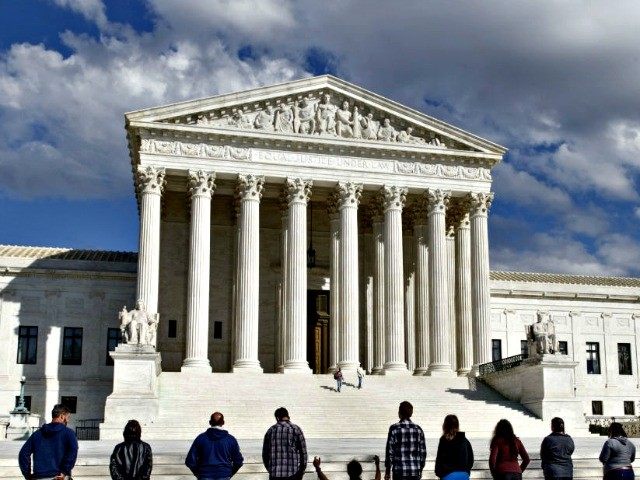The Milwaukee Journal-Sentinel reports on the end of a Supreme Court challenge to Wisconsin’s Voter ID law, essentially guaranteeing that the law will go into effect after the next election, which is coming up in April:
The U.S. Supreme Court on Monday rejected a challenge to Wisconsin’s voter identification law, restoring the measure it had dramatically blocked ahead of last November’s election but not in time for the April 7 ballot.
The decision by the justices means that the state will eventually require voters to show identification in all elections, but the action — made without comment — likely did not give Wisconsin the kind of advance notice needed to reinstate the law for the nonpartisan spring election.
The nation’s highest court froze the state law last fall for what appeared to be the same reason, acting after critics pointed out that absentee ballots had been mailed out without explanation of the ID requirement. This latest decision in a whole series of photo ID rulings comes just two weeks before Wisconsin Supreme Court Justice Ann Walsh Bradley faces challenger and Rock County Circuit Judge James Daley.
It’s likely the last decision of substance in a legal battle that has lasted for nearly four years.
“Absentee ballots are already in the hands of voters, therefore, the law cannot be implemented for the April 7 election. The voter ID law will be in place for future elections — this decision is final,” GOP Attorney General Brad Schimel said in a statement.
Schimel’s statement appeared to resolve in the negative the immediate question of whether photo ID would be in place for the upcoming election.
The Wisconsin Government Accountability Board, which runs state elections, issued a statement saying there would likely be special elections later in 2015 that will require voters to show photo ID. The first statewide election with the requirement will be the next spring primary, in February 2016.
This is a substantial victory for Wisconsin Governor Scott Walker, who described the Supreme Court’s decision as “great news for Wisconsin voters,” because the voter ID law is “a common sense reform that protects the integrity of our voting process, making it easy to vote and hard to cheat.”
The law provides free photo ID cards for voters who lack a suitable form of identification, but of course it was still described as somehow restricting the franchise by opponents, such as executive director Andrea Kaminski of the League of Women Voters: “The problem with our elections is that not enough people vote in them. The last thing we need is laws that erect barriers for people who have been good voters for decades.”
It’s not much of a “barrier” to any legal voter, but of course the dwindling opposition to the irresistible force of voter ID laws knows that. At this point, they’re just trying to milk a few quick talking points out of the situation before a popular, common-sense reform sweeps America from coast to coast.
It’s worth pondering the Cult of Democracy idea that “the problem with our elections is that not enough people vote in them,” or the implied solution that making it absurdly easy to vote is the answer, rather than motivating more citizens to learn about the issues and expend the minimal effort required to comply with a solid Information Age ballot system. That’s an academic discussion; on a practical level, a great majority of the American people simply see nothing wrong with asking for the same kind of identification that voters need to get on airplanes or purchase alcohol.
The voter ID argument is over – all that remains is to square away a few details, and ensure each new state law meets the standards approved by the Supreme Court in a landmark Indiana case, which required a few adjustments to Wisconsin’s law. The timing of a switch to voter ID is also important, since it’s not unreasonable to argue that changing the rules in the middle of an election is confusing, and elections last for a long time these days. The most convincing argument remaining against these laws is that they don’t do enough to block voter fraud, but that’s obviously not a discussion opponents have been eager to participate in.

COMMENTS
Please let us know if you're having issues with commenting.